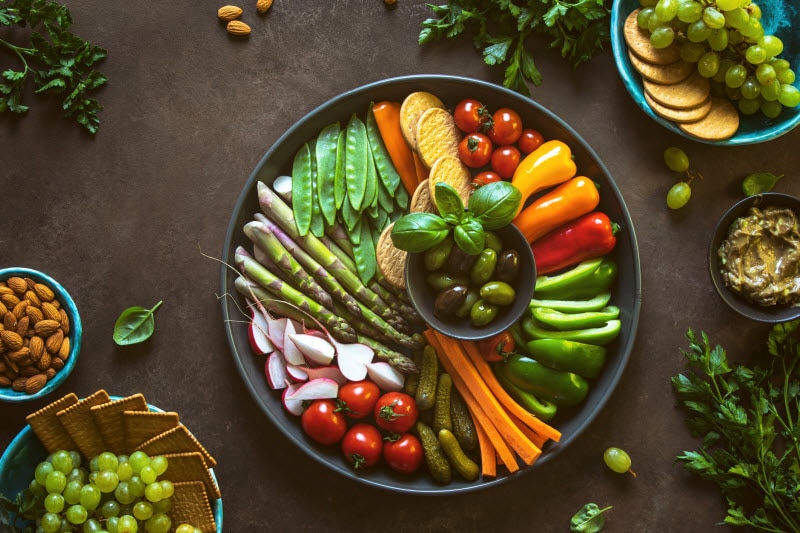
Over the years, gluten has evolved into a dietary four-letter word. In fact, nearly one-third of Americans have ditched gluten for a number of reasons, including Celiac disease, gluten sensitivity and gluten intolerance.
Now, a new dietary fixation has come on the scene — glucose.
French biochemist Jessie Inchauspé has authored two books on the subject of glucose: Glucose Revolution and The Glucose Goddess Method. The publisher of the second, most recent book describes it as a “practical guide for managing glucose to maximize health and longevity.”
As the National Institutes of Health (NIH) explains, our bodies need glucose, or blood sugar, to survive. “Glucose is the number one food for the brain, and it’s an extremely important source of fuel throughout the body,” Dr. Kristina Rother, a pediatrician who’s an expert on sweeteners, says in an NIH newsletter.
Given the vital part that glucose plays in our lives, Inchauspé has set out on a mission to teach people “surprising hacks” to reduce spikes in blood sugar.
Does the Glucose Goddess method work?
So, is Inchauspé on the right path?
Registered dietitian Michelle Saari of the EHealth project says the Glucose Goddess approach “is grounded in science, offering benefits for those who follow it. While some recommendations might not suit everyone’s taste, adopting her advice could lead to significant health improvements.”
Saari notes that the Glucose Goddess strategy isn’t just for people with diabetes. Rather, it focuses on blood sugar management for everyone.
“By emphasizing fiber, vegetables, lean protein, and cutting back on processed foods and sugars, it aligns with proven ways to reduce risks of heart disease and diabetes, enhancing long-term health,” Saari explains.
Saari concedes that one of Inchauspé’s recommendations — consuming a tablespoon of diluted vinegar each day — might not sit well with everyone, especially those who suffer from acid reflux, due to vinegar’s high acid content. But overall, she adds, the advantages of the Glucose Goddess diet “far its minor drawbacks.”
“I do think that following the Glucose Goddess method is a good choice for anyone. It promotes mindful meal planning, ensuring carbs are balanced with other nutrients,” says Saari. “This holistic approach to nutrition is beneficial for everyone, whether they just want better health or are currently prediabetic.”
A Wall Street Journal article about Inchauspé emphasizes that the Glucose Goddess method isn’t geared toward weight loss. Rather, it can help someone think more clearly, boost their energy and cut back on cravings, the article says.
One of the principles of the method: Pay attention to the food groups and the order of consuming them. As the Journal explains, Inchauspé’s glucose hacks include beginning meals with vegetables, eating a “savory” breakfast and putting “clothes” — protein, fat or fiber — on carbs.
In the article, Laura Bellows, associate professor of nutritional science at Cornell University, is quoted as saying that some of the studies on blood glucose levels cited to back up Inchauspé’s hacks are based on small sample sizes, and their findings might not apply to a broader population.
Bellows goes on to say that some of the glucose hacks are generally embraced by nutritionists (such as pairing protein and fat with carbs), but that other hacks might be overhyped (such as downing a teaspoon of diluted vinegar).
What Is a blood sugar spike?
A blood sugar spike happens when your glucose level jumps after eating, according to Baylor Scott & White Health in Texas. This occurs naturally after someone consumes carbs. A spike leads to an immediate release of insulin (which regulates blood sugar) and a companion hormone known as amylin.In most cases, this process is relatively simple, although it can lead to cravings and lethargy. But for some people, including those with diabetes, the process might be harmful.
Houston’s MD Anderson Cancer Center points out that in the short term, a spike in blood sugar causes a “sugar rush,” followed by a “sugar crash.” In the long term, this rush-and-crash cycle might trigger heart, kidney, vision and nerve problems.
How can you reduce blood sugar spikes?
If you’ve decided against adopting the Gluten Goddess method for taming blood sugar spikes, what else can you do to rein in your glucose levels? Here are five tips:
Turn to complex carbohydrates.
The extra fiber in complex carbs like brown rice, whole wheat pasta and whole wheat bread can help slow digestion and helps steer clear of blood sugar spikes, according to MD Anderson.
Get moving.
Regularly engaging in light to moderate exerciseimproves your body’s use of discipline. Therefore, you need less insulin to better manage your blood sugar levels, MD Anderson says.
Control stress.
As MD Anderson explains, stress can cause unbalanced hormones. “When we are in a moment of stress, the hormones adrenalin and cortisol are released,” the cancer center says, “and our blood sugar rises to give us energy to deal with the immediate threat. This is helpful initially, but if you are under chronic stress, it’s a problem.”
Avoid foods with a high glycemic index.
The glycemic index (GI) measures how quickly a food can prompt a jump in blood sugar, according to Baylor Scott & White. GI scores range from 0 to 100, with pretzels landing at 87 and peanuts dropping to 7. “Foods that have a high GI are often high in processed carbohydrates and sugars, are quickly digested and absorbed, and can cause a rapid rise in blood sugar,” the health care system says.
Eat balanced meals and snacks.
Make sure your meals and snacks provide a healthy combination of carbs, proteins and fats, Baylor Scott & White advises.






